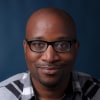Chung Sung-Jun AFP/Getty Images
BEIJING — A young, healthy man from Wuhan and a person living 1,500 miles from the epicenter of the coronavirus are among the latest victims of the outbreak, which has incited fear and anger across China as the important Spring Festival gets underway.
Reports of eight new deaths from the pneumonia-like virus, taking the total to 26, came as authorities enforced a lockdown across large parts of the province of Hubei, population 59 million. But they also came as the medical system clearly struggled to cope with the outbreak, with reports of crowded hospitals, stressed doctors and dwindling supplies.
Adding to the stress, Friday marked the official start of the Spring Festival, when China celebrates the arrival of the new lunar year. Authorities around the country, including in the capital Beijing, have canceled the temple fairs and festivals that accompany the holiday to avoid having large public gatherings where the airborne virus could be spread.
“The public should not gather during the Spring Festival and try stay at home as much as possible to protect themselves,” Gao Fu, a member of the expert group of the National Health and Health Commission and director of the Chinese Center for Disease Control and Prevention, said Friday.
He encouraged everyone to wear masks, and photos from train stations and airports across the country showed people with their mouths and noses covered.
The state broadcaster, CCTV, led its midday news broadcast with a report about a huge Spring Festival banquet in Beijing, led by Xi Jinping and other Communist Party leaders. None of them were wearing masks and there was no mention of the virus outbreak in any the report.
[
]
The National Health Commission reported Friday that there are now more than 830 confirmed cases of infection, and reports of new cases continued to roll in from around the country: from Xinjiang in the west to Shandong in the east, from Inner Mongolia in the north to Hainan in the south.
A total of 8,420 were reported to be under observation.
Amid increasing talk that the real number of deaths and infections could be much higher than the official figures, the State Council, the Chinese equivalent of the cabinet, vowed to “seriously handle” underreporting of cases.
But still the virus continues to spread, including outside China’s borders.
South Korean authorities confirmed Friday that a second person tested positive for the new coronavirus. The person had flown from Wuhan to Incheon airport, outside Seoul, and is now hospitalized.
Japan also confirmed a second case, a man in his 40s from Wuhan who arrived in Japan on Sunday. He is currently being treated, the health ministry said.
Other countries to have reported infections including Thailand, Singapore, Vietnam and the United States. In addition to a confirmed case in Washington state, Texas has reported a potential case of coronavirus in Brazos County, about 100 miles northwest of Houston.
The patient contracted a respiratory illness within two weeks of traveling in Wuhan and is being isolated at home, the Centers for Disease Control and Prevention said
While the World Health Organization has still not declared the outbreak was a public health emergency of international concern, Director General Tedros Adhanom Ghebreyesus said Thursday that it still amounted to “an emergency in China.”
“It has not yet become a global health emergency, but it may become one,” he said.
[Travel ban goes into effect in Chinese city of Wuhan as authorities try to stop coronavirus spread]
Some details about the latest deaths in China have raised concerns about the virus’s spread.
Until now, the vast majority of the people had been older than 60 and almost all of them had existing health conditions. All of them had been in Hubei province and especially in its capital, Wuhan.
But the latest announcement said that 36-year-old man from Wuhan, identified only by his family name, Li, died on Thursday. He had no chronic diseases or other existing health conditions, and had been treated with anti-virus medication and antibiotics since being admitted to hospital on Jan. 9.
Another death occurred in Suihua in Heilongjiang province, near the border with Russia and some 1,500 miles from Wuhan.
New travel restrictions were put in place Friday to try to curb transmission of the virus.
Wuhan shut down tunnels under the Yangtze River to stop the flow of traffic. That comes in addition to the travel bans imposed on Wuhan and seven other areas in Hubei province Thursday, with trains and buses canceled and highways closed.
All ride hailing services in Wuhan were cut off from midday 12:00 Friday in attempt to stop transmission of the virus, and only half of taxis are allowed on the road every day, alternating between tags ending in odd and even numbers.
China Southern, the country’s biggest carrier, had already canceled all flights in and out of Wuhan airport on Thursday. The other two main carriers, Air China and China Eastern, said they would cancels all Wuhan flights Friday to at least Feb. 8.
[As families tell of pneumonia-like deaths in Wuhan, some wonder if China virus count is too low]
Authorities are taking extreme measures to stop the large public gathering that are a hallmark of the Spring Festival, which is often the only time of year that families can gather together, much like Thanksgiving in the United States.
New year festivals and temple fairs around the country have been canceled, and the Forbidden City in Beijing, which can admit 80,000 people a day and was already entirely sold out for the holiday, has been closed until further notice.
Production companies have postponed the release of seven blockbuster films that were to be released over the holiday, leading Chinese cinema companies to close the country’s 70,000 movie theaters.
Schools in Hubei province, due to begin the spring semester after the holiday, will not open their doors as planned but will wait for further guidance from health authorities. And the education ministry instructed universities around the control to delay their opening dates if necessary.
Lyric Li and Wang Yuan in Beijing contributed to this report.
Read more:
Stock markets brace for economic impact of coronavirus outbreak
Wuhan: The Chinese megacity at the center of coronavirus outbreak
See how the coronavirus is upending daily life in China
Today’s coverage from Post correspondents around the world
Like Washington Post World on Facebook and stay updated on foreign news
https://news.google.com/__i/rss/rd/articles/CBMisQFodHRwczovL3d3dy53YXNoaW5ndG9ucG9zdC5jb20vd29ybGQvaGVhbHRoeS15b3VuZy1tYW4tZGllcy1vZi1jb3JvbmF2aXJ1cy1pbi1jaGluYS1uZXctY2FzZXMtaW4tamFwYW4tYW5kLXNvdXRoLWtvcmVhLzIwMjAvMDEvMjQvMGNkNDE5MjYtM2U3OS0xMWVhLTk3MWYtNGNlNGY5NDQ5NGI0X3N0b3J5Lmh0bWzSAQA?oc=5
2020-01-24 07:40:00Z
52780557239644




